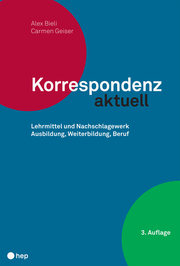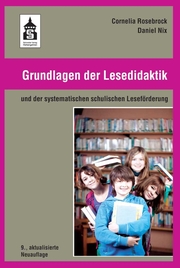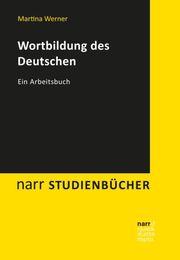Modality in Contemporary English (E-Book, PDF)
Modality in Contemporary English
eBook - ISSN
Bibliographische Informationen
Format: Digitale Rechteverwaltung: Adobe DRM
Beschreibung
The future of English linguistics as envisaged by the editors ofTopics in English Linguistics lies in empirical studies, which integrate work in English linguistics into general and theoretical linguistics on the one hand, and comparative linguistics on the other. The TiEL series features volumes that present interesting new data and analyses, and above all fresh approaches that contribute to the overall aim of the series, which is to further outstanding research in English linguistics.
For further publications in English linguistics see also ourDialects of English book series.
To discuss your book idea or submit a proposal, please contactNatalie Fecher.
Autorenportrait
Roberta Facchinetti is Associate Professor at the University of Verona, Italy.
Manfred Krug is Associate Professor at the University of Freiburg, Germany.
Frank R. Palmer is Professor Emeritus at the University of Reading, UK.
Inhalt
PrefaceRoberta Facchinetti, Manfred Krug, Frank Palmer
Modality in English: theoretical, descriptive and typological issuesFrank Palmer
The semantics and pragmatics of core modal verbs
Irrealis, past time reference and modalityPaul Larreya
Modal auxiliary constructions, TAM and interrogativesRichard Matthews
A pragmatic analysis of the epistemic would construction in EnglishGregory Ward, Betty J. Birner, Jeffrey P. Kaplan
Towards a contextual micro-analysis of the non-equivalence of might and couldStéphane Gresset
The status of emerging modal items
On two distinct uses of go as a conjoined marker of evaluative modalityPhilippe Bourdin
Had better and might as well: on the margins of modality?Keith Mitchell
What you and I want: A functional approach to verb complementation of modal want toHeidi Verplaetse
Between epistemic modality and degree: the case of reallyCarita Paradis
Stylistic variation and change
Modality on the move: the English modal auxiliaries 1961-1992Geoffrey Leech
E-Book Informationen
„eBooks“ sind digitale Bücher. Um eBooks lesen zu können, wird entweder eine spezielle Software für Computer, Tablets und Smartphones oder ein eBook-Reader benötigt. Da es eBooks in unterschieldichen Formaten gibt, gilt es, folgendes zu beachten.
Von uns werden digitale Bücher in drei Formaten ausgeliefert. Die Formate sind EPUB mit DRM (Digital Rights Management), EPUB ohne DRM und PDF. Bei den Formaten PDF und EPUB ohne DRM müssen Sie lediglich prüfen, ob Ihr eBook-Reader kompatibel ist. Wenn ein Format mit DRM genutzt wird, besteht zusätzlich die Notwendigkeit, dass Sie einen kostenlosen Adobe® Digital Editions Account besitzen. Wenn Sie ein eBook, das Adobe® Digital Editions benötigt, herunterladen, erhalten Sie eine ASCM-Datei, die zu Digital Editions hinzugefügt und mit Ihrem Account verknüpft werden muss. Einige eBook-Reader (zum Beispiel PocketBook Touch) unterstützen auch das direkte Eingeben der Login-Daten des Adobe Accounts – somit können diese ASCM-Dateien direkt auf das betreffende Gerät kopiert werden.
Da eBooks nur für eine begrenzte Zeit – in der Regel 6 Monate – herunterladbar sind, sollten Sie stets eine Sicherheitskopie auf einem Dauerspeicher (Festplatte, USB-Stick oder CD) anlegen. Außerdem ist die Anzahl der Downloads auf maximal 5 begrenzt.
Weitere Artikel aus der Kategorie "Deutsche Sprachwissenschaft, Deutschsprachige Literaturwissenschaft"
Derzeit nicht verfügbar

Lieferbar innerhalb 24 Stunden

Lieferbar innerhalb 24 Stunden

Neuerscheinung






